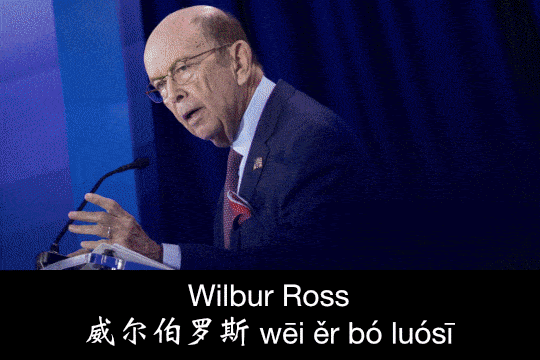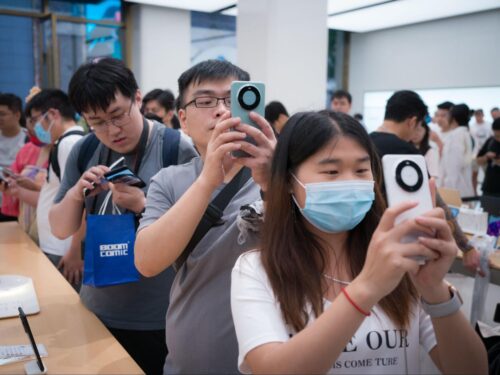Wilbur Ross confirms U.S. firms can sell to Huawei


U.S. Commerce Secretary Wilbur Ross confirmed yesterday that “the U.S. would grant licenses to U.S. companies that want to sell technology to Huawei Technologies Co. as long as the sales wouldn’t put national security at risk, expanding on a pledge made last month by President Trump to Chinese President Xi Jinping,” according to the Wall Street Journal:
Huawei will remain, however, on the Commerce Department’s “entity list,” Mr. Ross said Tuesday, meaning that companies that want to sell U.S.-sourced technology to Huawei must first apply for a license. The department will continue to review such licenses with a “presumption of denial,” he said.
Mr. Ross didn’t issue any timeline for when such licenses might be granted. A Huawei spokesman didn’t immediately respond to a request for comment.
Meanwhile, Reuters says, “The United States and China are set to relaunch trade talks this week after a two-month hiatus, but a year after their trade war began there is little sign their differences have narrowed.”
The view from Beijing is similarly gloomy, according to Bloomberg, which states that “few in Beijing see a clear pathway to a lasting deal. Pessimism dominated in conversations last week with about a dozen bureaucrats, government advisers and researchers in China’s capital.”
Here are other reports from the front lines:
- “It’s open season if you’re a Chinese-American scientist. They’ve got a target on their back.” That’s the view of Peter Zeidenberg, “a former federal prosecutor who has represented several Chinese-American professors and researchers in these espionage-related cases,” according to the Boston Globe. Zeidenberg added, “They are extremely alarmed and afraid.” See also on The China Project:
- The Chinese ambassador to the U.S., Cuī Tiānkǎi 崔天凯, has joined Twitter. His only tweet so far: “I’m pleased to join Twitter and look forward to engaging with more American people. Feel free to follow me and @ChineseEmbinUS to stay looped in.” Cui has not yet followed anyone, so it looks like his account will be a one-way channel of communication.
I'm pleased to join Twitter and look forward to engaging with more American people. Feel free to follow me and @ChineseEmbinUS to stay looped in.
— Cui Tiankai (@AmbCuiTiankai) July 8, 2019
- “Chinese venture capital investment in U.S. biotech companies fell by more than half in the first half of the year as Washington tightened scrutiny of funding from overseas, raising fears that U.S. start-ups will struggle to raise funds and access the large Chinese market,” reports the Financial Times.
- New duties on Chinese and Mexican steel are in the works, CNN reports:
The U.S. Department of Commerce said Monday that exporters of fabricated structural steel in China benefited from subsidies ranging between about 30 and 177 percent, while those in Mexico received subsidies of up to 74 percent.
The department said it will instruct U.S. Customs and Border Protection to start collecting cash deposits from importers of the steel products from both countries. It noted that the decision is preliminary, and final determinations will be announced around November 19.
In 2018, the US imported $897.5 million worth of fabricated structured steel from China, and $622.4 million worth from Mexico, according to the Commerce Department.
- Trump’s tariffs could cause a Bible shortage in the U.S., according to the Associated Press: “That’s because millions of Bibles — some estimates put it at 150 million or more — are printed in China each year… Critics of a proposed tariff say it would make the Bible more expensive for consumers and hurt the evangelism efforts of Christian organizations that give away Bibles as part of their ministry.”






